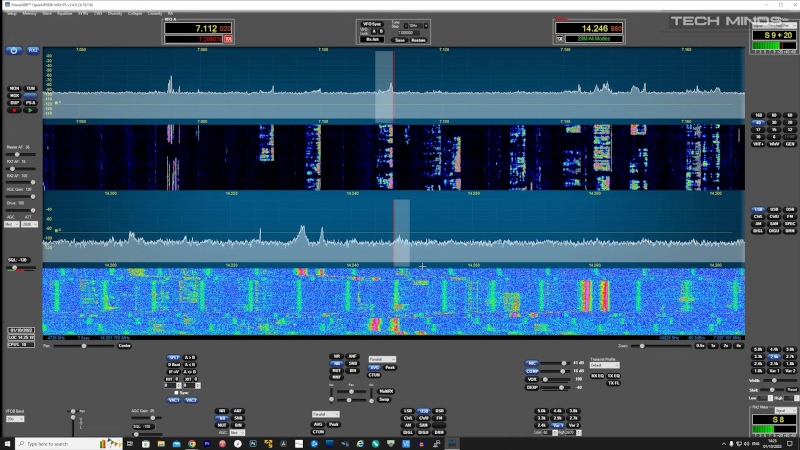
If you’ve noticed the TRX-DUO software-defined radio transceiver, you might have wondered how it stacks up to other choices like Red Pitaya or HackRF. [Tech Minds] obliges with a review of the Red Pitaya-compatible device in the video you can see below.
While this unit isn’t inexpensive, it also isn’t as expensive as some of its competitors. Sure, you can pick up an RTL-SDR dongle for a fraction of the price, but then you miss out on transmitting. The device is pretty powerful compared to a cheap software defined radio:
- Frequency: 10 kHz to 60 MHz
- CPU: Zynq SoC with a dual-core ARM Cortex A9
- RAM: 512 MB
- OS: Linux
- Connectivity: Ethernet and USB connectivity (WiFi with a dongle)
- ADC: 16-bit at 125 MS/s (2 channels)
- DAC: 14-bit at 125 MS/s (2 channels)
The board boots off an SD card and there are several to choose from. The video shows two different images. One has a number of applications that run on the device and will also run on a Red Pitaya. The device shows a browser menu with various options and the result is quite impressive. Using the box as a WSPR beacon, it was heard fairly well given the low output power. It was, however, able to hear the world easily.
You can get a less capable Red Pitaya model for about $100 less than the going price. However, for something comparable, you will pay more for the Red Pitaya and — depending on capabilities — perhaps a lot more, although you do get more capability for the increased price.
You can do a lot more with a transmitting SDR — having both transmit and receive opens up many new projects. Of course, canned applications are great, but if you get one of these, you are going to want to try GNU Radio.
0 Commentaires